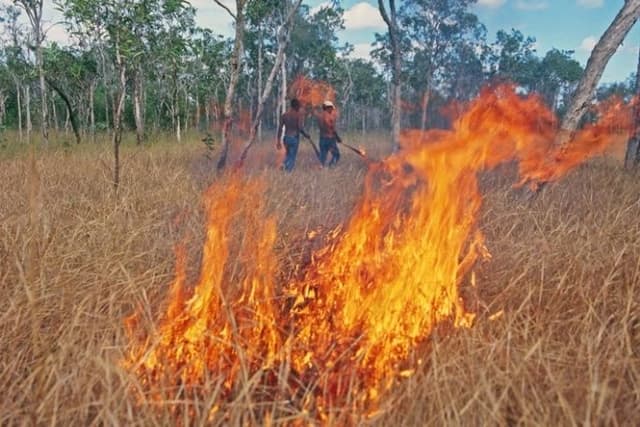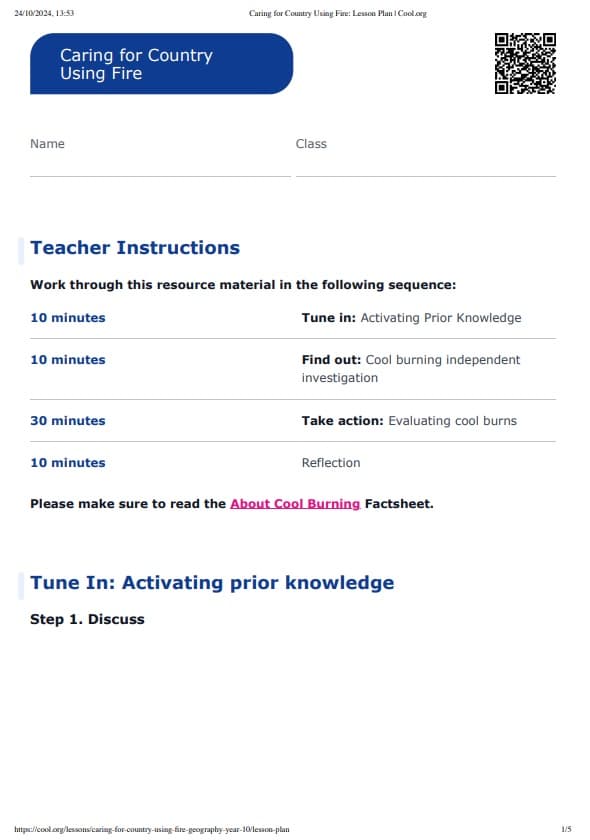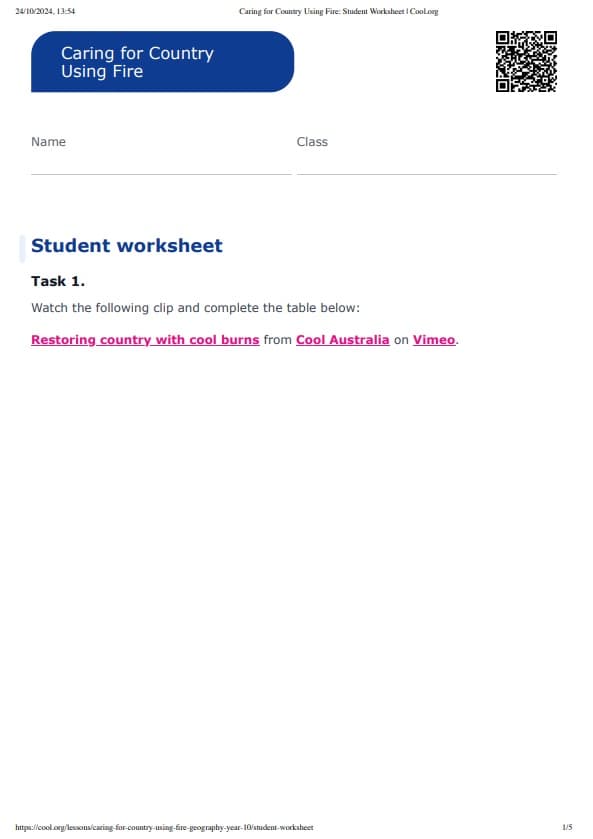
Caring for Country Using Fire
Lesson2 of 8 in this unit
Cool+SecondaryYear 10Humanities and Social SciencesGeographyAboriginal and Torres Strait Islander Histories and CulturesEnvironmentalLand ManagementSocialIndigenous Education
Summary
Lesson Guides and Printables
Lesson Plan

Student Worksheet
